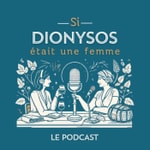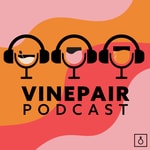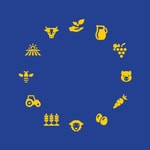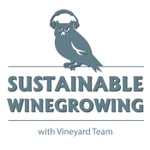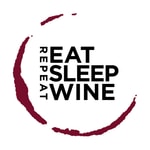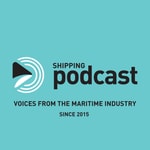Climate Talks by Porto Protocol – Details, episodes & analysis
Podcast details
Technical and general information from the podcast's RSS feed.
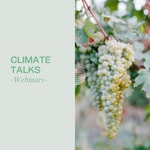
Climate Talks by Porto Protocol
The Porto Protocol Foundation
Frequency: 1 episode/34d. Total Eps: 45

Recent rankings
Latest chart positions across Apple Podcasts and Spotify rankings.
Apple Podcasts
🇬🇧 Great Britain - nature
14/03/2025#96🇬🇧 Great Britain - nature
13/03/2025#78🇫🇷 France - nature
13/03/2025#95🇬🇧 Great Britain - nature
12/03/2025#57
Spotify
No recent rankings available
Shared links between episodes and podcasts
Links found in episode descriptions and other podcasts that share them.
See allRSS feed quality and score
Technical evaluation of the podcast's RSS feed quality and structure.
See allScore global : 28%
Publication history
Monthly episode publishing history over the past years.
Water Footprint in Wine
Season 3 · Episode 3
vendredi 24 janvier 2025 • Duration 01:00:58
The water footprint (WF) of a product is an indicator of the consumptive use of water resources along its life cycle. Water scarcity is recognized to be a major global challenge. As such, the evaluation of the WF of agro-industrial products is key, as they are widely known as having a significant footprint on water resources.
According to the Water Footprint Network The global average water footprint of grapes is 610 liter/kg. One kilogram of grapes results in 0.7 liter of wine, so the water footprint of wine is APPROXIMATELY 870 liters of water per liter of wine. This means that one glass of wine (125 ml) costs 110 liters (a). Even knowing that the vine has a capacity for survival and resilience to austere climates, as we speak, the increased production of grapes and wine, combined with droughts and climate change, sore than ever, water needs to be used efficiently. Therefore, there is a need to understand where and how we can improve water management in the wine life cycle, reduce it, or even eliminate it.
THE DISCUSSION
This Climate Talk addresses this issue and tries to identify the major challenges to the use of water throughout grape and wine production in this warming climate. In this conversation, we will analyze the importance of efficient use of water and explore the best technologies and practices available both in the field and on the wineries. To do so, we will count on different guests from around the world.
GUESTS
Michele Manelli (Salcheto, Italy)
Andrej Razumovsky (Alpamanta, Argentina)
Aaron Schreiber-Stainthorp (Jackson Family Wines, USA)
HOST
João Barroso (WASP - Wines of Alentejo Sustainability Programme, Portugal)
Climate Learnings from Region to Region
Season 3 · Episode 1
vendredi 24 janvier 2025 • Duration 58:30
Our first one-to-one Climate Talk will be a discussion between Greg Jones (Climatologist and CEO at Abacela) and Etienne Neethling (Head of the international master program in vine, wine, and terroir management at the Ecole Supérieure de L’Agriculture and an OIV expert within the ENVIRO group).
They will be exploring what wine regions are similar in its various dimensions, from soil to grape varieties.
DISCUSSION TOPICS
What is a climate analogue?
Which bioclimatic indices are specific to grape and wine production and how do we calculate them?
Which wine regions have similar climates?
Is climate change a major environmental challenge for the wine sector?
Can European wine regions draw on viticultural lessons from warmer and drier wine regions in countries like South Africa or Australia?
What are the opportunities and challenges for emerging cool wine production regions or regions?
Click HERE for the presentation
https://youtu.be/FsgmBONlkEU
Saving Every Drop: Lessons Learned and Innovation In Regenerative Viticulture
Season 3 · Episode 10
mardi 19 septembre 2023 • Duration 01:05:15
This discussion will explore regenerative viticulture’s impact on water conservation in this engaging webinar. Learn from experts as they share strategies for saving water in vineyards. Discover innovative approaches that promote sustainable water management while maintaining wine quality. This webinar inspires vineyard owners, winemakers, and enthusiasts to embrace regenerative viticulture for a sustainable future, preserving water resources and ensuring the wine industry’s longevity.
Jessica Villat will host the talk with Elizabeth Whitlow (Regenerative Organic Alliance), Mimi Casteel (Regenerative Viticulture Foundation) and Francisco Font (Associación de Viticultura Regenerativa).
Sustainability and Profitability - Climate Talk by Porto Protocol
samedi 22 avril 2023 • Duration 01:15:21
This Climate Talk is a Business Edition, in which we explore how sustainability and profitability can go hand in hand, through the voices and best practices of different representatives of the wine trade, such as importers, distributors, retailers and traders.
Steven Campbell (from Campbell Kind Wines), Melissa Monti Saunders, Master of Wine (from Communal Brands) and Dom de Ville (from The Wine Society) talk about embracing Sustainability, social impact, packaging, and the benefits in the long term.
More information here
Also available on YouTube
Cépages et Porte-Greffes en réponse au Changement Climatique - Climate Talk by Porto Protocol
Season 3 · Episode 4
jeudi 30 mars 2023 • Duration 01:07:49
Dans le contexte du changement climatique, les cépages jouent un rôle important dans les solutions adaptation. Sachant que selon l’OIV, il existe 6000 cépages et que 13 d’entre eux couvrent le tiers des vignobles, est-il nécessaire de considérer les hybrides? Alors que certains ont la certitude que les hybrides vont jouer un rôle positif dans le futur, d’autres prônent l’exploration des cépages existants et de leurs clones ainsi que des recherches plus avancées sur les porte-greffe. INVITÉE Michelle Boufard - Tasting Climate Change - Canada Lilian Bérillon - Pepiniere Berillon - France Yiannis Paraskevopoulos - Gaia Wines - Greece Michael Marler - Vignobles Pervenches - Canada
Biochar as a Mitigation Tool?
Season 3 · Episode 3
vendredi 3 mars 2023 • Duration 01:01:09
This Climate Talk was hosted by Mimi Casteel from Hope Well Wine with Claudia Kammann from Hochschule Geisenheim University, Hans-Peter Schmidt from Ithaka Institute and Antoine Lespès from Domaine LAFAGE as guest speakers.
INTRODUCTIONIn the ever-expanding ocean of sustainability technologies, you have undoubtedly heard the term biochar. Once relegated to fringe-conversations, biochar has now gained a strong foothold in mainstream academic and applied research, and its use is being studied for everything from climate change mitigation to restoration of soil carbon stores, recovery of soil structure, nutrient cycles and function, soil remediation and detoxification applications, bioenergy production, and more.
Biochar is a specific form of charcoal produced through pyrolysis, which is the conversion of organic materials (biomass) under very high temperatures (greater than 500*C) to black carbon in the absence of oxygen. This form of Carbon is incredibly durable and resistant to decomposition that it can be a long-term storage form of Carbon in soils. The production techniques used in making biochar are commensurate with its potential benefits, and anyone considering biochar should become fluent in the best practices for its production. However, given the almost unfathomable sources of feedstocks, from animal manures to thinning of forest biomes for fire mitigation, to crop residues, biochar is a very exciting topic and its potential benefits in the climate crisis are myriad.
For farmers and land managers, biochar is exciting for a number of reasons, which we will get into deeply today. Its alkalinity can naturally lower acidic soil pH, can help hold soluble positively charged cations like Calcium and Potassium, it can decrease soil bulk density in compacted soils, increase aggregation, aeration, reduce leaching, bind and sequester toxins, and perhaps most importantly (at least to me), biochar has an unparalleled potential in the campaign to rehydrate soils most at risk for desertification. I’ve seen this benefit myself, and I am really looking forward to exploring all of these topics with our panel of experts.
WATCHWine Education and Climate Change
Season 3 · Episode 2
samedi 25 février 2023 • Duration 59:55
Wine is first and foremost an agricultural product, extremely vulnerable to climate change. Its impact is being experienced by vintners in a variety of ways, as extreme weather events, from droughts to heat waves, from out of season hail to floods, are impacting yields, phenology, wine quality and taste and vines health. Harvests have been lost and new regions have arisen because of it.
But just as wine production is affected by a changing climate it also contributes to enhance it in a variety of ways, may it be through the choice of packaging, viticulture practices or transportation.
In this Climate Talk we’ll seek to understand how key education institutions around the world are changing their curriculums to prepare a new breath of future vintners, viticulturists, and wine business managers to acquire the necessary skills and knowledge to address the new reality they will encounter and ultimately protect the wine industry.
GUESTS:
- Hans Reiner Schultz, President at the Geisenheim University / Germany
- Jeremy Cukierman, MW and Director at Kedge Wine School / France
- Dario Cantù, Professor and Chair at the Department of Viticulture and Enology at UCDAVIS; Executive director of the UC Davis Chile Life Sciences Innovation Center/ USA and Chile
HOST:
- Greg Jones / Abacela winery / USA (Climatologist and former-Professor at Lindfield College)
The value of sustainability for international markets
mardi 31 janvier 2023 • Duration 47:35
In this podcast episode, you will listen to Anna Brittain (MD at Napa Green), Marja Aho (Sustainability Manager at Alko Oy) and Polly Hammond (MD and Founder 5Forests) representing 3 different stakeholders with tremendous experience in sustainability in wine to share their expertise and experience with the audience.
This panel was part of the hybrid event at the Instituto Politécnico de Viseu on December 13th, where we presented the results of a study in partnership with 5 wine regions that represent in total 38% of Portugal's wine (volume and area), that resulted into an "immersion" into sustainability in these wine regions.
We spoke and got to know dozens of wine and grape producers, their practices (the sustainable and not-so-sustainable ones), their challenges, and their needs to, ultimately, bring together a characterization of the status of sustainability in these regions and routes to prepare a sustainable development path for the future. We also invite you to see the documentary on our YouTube channel: https://www.youtube.com/watch?v=dPyUNJPJY2Y
Discovering the world of vineyard microbes - Climate Talk by Porto Protocol
lundi 30 janvier 2023 • Duration 01:04:18
This Climate Talk is a Research Edition, dedicated to the work generated by academia.
We counted with different experts and researchers from distinct European Universities, who will share the result of different studies, carried out from different perspectives, around the world of vineyard microbes. We seek to understand how our practices influence the health of our vineyards, the environment, and the wine, exploring the structure, function and management of the vineyard microbiome.
It took place in the form of a hybrid event, with a live audience of students from UTAD (Trás-os-Mosntes University).
HOST
Tom Croghan, The Vineyards ad Dodon / USA
GUESTS
Kees Van Leeuwen, Bordeaux University's Institut des Sciences de la Vigne et du Vin / France
Andreia Figueiredo, Science Faculty of Lisbon University / Portugal
Alex Gobbi, University of Copenhagen / Denmark
Waste Management and Circularity - Climate Talk by Porto Protocol
mardi 6 décembre 2022 • Duration 01:00:21
In this Climate Talk, the words reduce, reuse and rethink will be on top of the discussion. We’ll explore why and how a circular approach can provide the way for (wine) companies to establish waste management initiatives for inorganic and organic waste that enable them to close the loop. Our guests and host will share practical examples to help us understand how to apply circular economy in our daily practices, reduce waste streams in the wine industry and rethink the way we approach the word “waste”.
HOST:
Marta Juega / Alliance Wine / UK
GUESTS:
Michele Manelli / Salcheto / Tuscany, Italy
Patricia Berardi / Textura Wines / Serra da Estrela, Portugal
Stephanie Barger / Zero Waste / True Certification / California, USA
